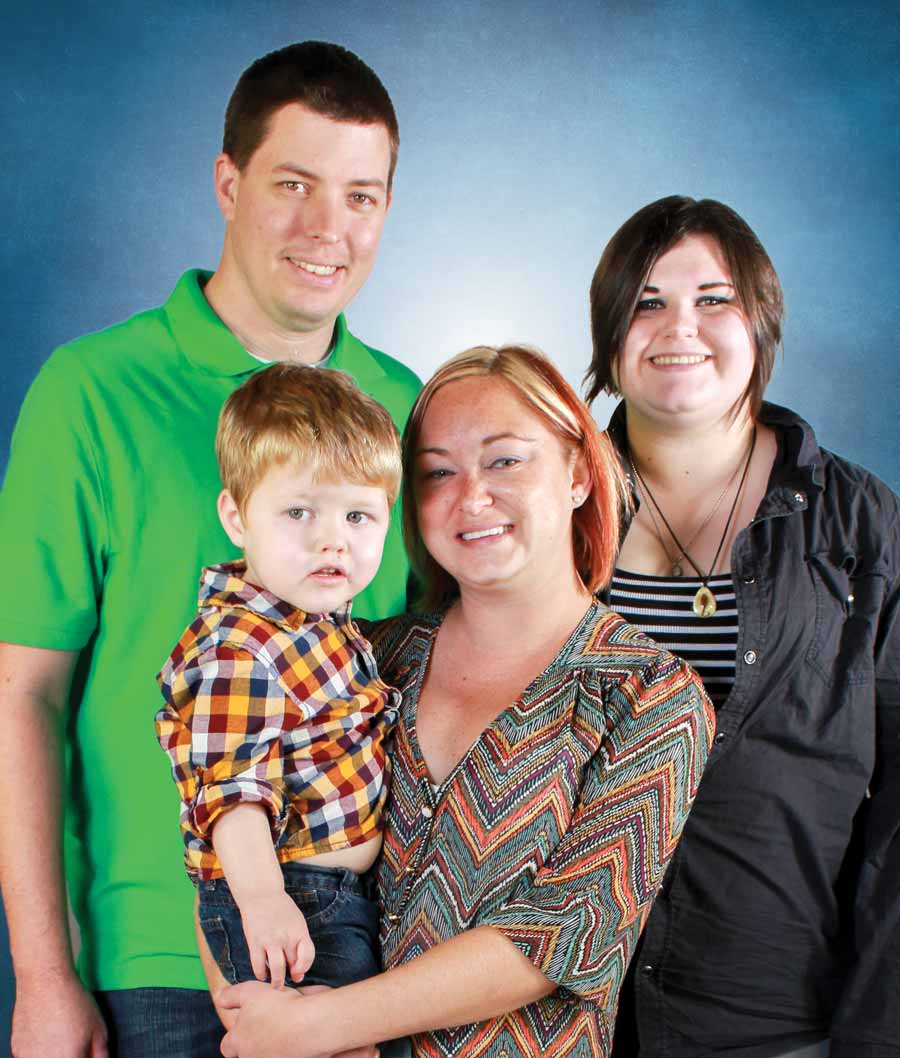The Challenges and Rewards of Fostering Teens
The third in a series of
Finding foster homes for teenagers can be a challenge, but with patience and love these children blossom into successful adults who are forever grateful to parents who stepped up and made a difference.
It’s not easy being a teenager. Peer and social pressures, school work, worries about the future and other tribulations make growing pains very real. Add an unstable family situation and the emotional tolls tally up even quicker.
Many licensed foster parents are often reluctant to tackle the challenges of raising a teenager, especially ones with a lot of emotional baggage. But those families who do open their doors to these often hard-to-place minors are rewarded immensely.
Ashley and John Kennen of Leesburg wanted a family, but Ashley had a double lung transplant in 2010 and was unable to get pregnant. After becoming licensed foster care parents through Kids Central, the Kennens welcomed their first foster child — Rachel, a 14-year-old who had already been in several group homes.
“Everyone saw potential in her and knew if she was placed with the right family, she’d be okay,” says Ashley. “We were very comfortable about taking her and had no apprehension at all about her being a teenager.”
Rachel recently turned 17 and is preparing to graduate from high school in May. She plans to stay with the Kennens and continue her education until she is 18.
“Rachel is thriving because she got the attention she needed,” says Rosey Moreno-Jones, who is in charge of foster parent recruitment for Kids Central, Inc., a nonprofit community-based agency that works with the Florida Department of Children and Families.
Kids Central tries to find the right match for foster parents and children. Counselors are encouraged to focus on the attributes of the child, not the age, when placing a child.
Moreno-Jones knows firsthand how that works. She took in a 15-year-old foster child more than 20 years ago and eventually adopted him. Like many other foster parents, she had preconceived notions about fostering teenagers.
“I never intended to take a teen, but the placement counselors had me sold on him before I knew his age,” she remembers. “From what they were describing, I had a picture in my mind of an adorable Dennis the Menace type kid who had already been in several group homes.”
Her son is now thriving as a 37-year-old successful businessman. “We got through the teenage years just like biological families do,” says Moreno-Jones.
The Kennens admit that raising a teenager can have its challenges. “We reassure her that it’s okay to have disagreements and that we would argue even if she was our own biological child. It’s human nature,” says Ashley. “I remind her that I treat her just as I would if she were my own daughter and we talk a lot.”
“If you want to be a family, you can be a family…and a loving one.”
— ASHLEY KENNEN
The family also includes 3-year-old Zander, a foster son that came after Rachel, who had been an only child in her biological family. People often ask the Kennens about raising children with such a wide age span.
“Rachel loves him,” say Ashley. “She shows more responsibility and looks out for him.”
Kids Central believes teens thrive when wrapped in the love of a family and have opportunities to build connections, like the ones the Kennens have provided.
Lake County has an outstanding network of caring foster parents, but it still falls short when matching the population of children with beds that are already licensed and available. The beds are there (about 350 in-home for Judicial Circuit Five that Kids Central serves), but some foster homes turn away children, simply because of the child’s age. Adolescents and teenagers are the hardest to place because foster families think they are not equipped to handle older children.
Group homes are still necessary, according to Nicole Pulcini-Mason, community affairs director for Kids Central. “It’s not common, but some children need therapeutic homes and would not necessarily thrive in a family situation,” she says. “When most kids first come to us, we want to try to place them with foster families.”
As of Feb. 1, Lake County group facilities had 16 youths. Recent news reports about sexual abuse in a Leesburg group home made the public cringe and brought attention to the plight of not having enough foster families step up to the plate when it comes to taking older kids.
The other alternative is sending youths out of their home counties, which can have just as many disadvantages.
“Every time these kids change schools, they lose ground and their education suffers,” explains Moreno-Jones. “They lose everything that is familiar to them. All they know is that their home and family are far away. These children have their hearts broken over and over.”
The solution, Ashley Kennen believes, is for foster parents to try it just as she and her husband have done.
“Take one teen and have patience,” she says. “If you want to be a family, you can be a family…and a loving one.”

